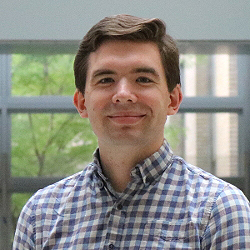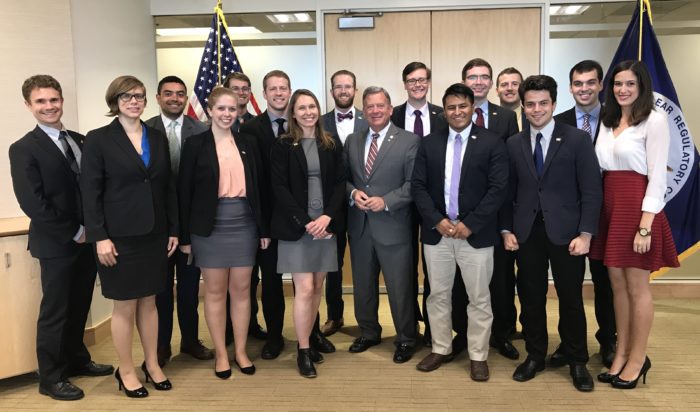How do you advocate for nuclear issues to policymakers and convince them to support your work? Here, NSE Communication Fellow Patrick White describes his recent experience in D.C. doing just this.
 This summer, I traveled to Washington D.C. with fifteen other students from across the country to discuss issues facing nuclear energy policy, education, and research with policymakers. As members of the Nuclear Engineering Student Delegation (NESD), we understood the importance of nuclear science and engineering research and education, but we needed help communicating our message to Congressional legislators and their staffs.
This summer, I traveled to Washington D.C. with fifteen other students from across the country to discuss issues facing nuclear energy policy, education, and research with policymakers. As members of the Nuclear Engineering Student Delegation (NESD), we understood the importance of nuclear science and engineering research and education, but we needed help communicating our message to Congressional legislators and their staffs.
One big challenge was crafting our individual policy pitches so we could explain to anyone we met (Senators, think-tank staffers, or even tourists!) who we are, why we had traveled to Washington, and why our message should matter to them. In less than 45 seconds, we needed to:
- Explain our research using terms that non-scientists could actually understand,
- Connect our research to an issue that the audience cares about, and
- Convince the audience that they should support federal funding for nuclear science and engineering research because it has an impact on that issue
It was a bit tough at first to think like a policymaker, but after some writing, revision, and practice (and few tips from the CommKit), we were able to each perfect our pitch and walk confidently into our meetings with Congressional staff.

Members of the Nuclear Engineering Student Delegation meet with NRC Commissioner David Wright in Washington, D.C.
Our week in Washington was a huge success and the students on the Delegation got a valuable crash course in how scientific research is communicated into policy. If you want to learn more about how to communicate your research with policymakers or advocate for issues you care about, be sure to check out the Science Policy CommKit! It has different articles depending on how you want to communicate your work (e.g. written comments, in-person meetings, newspaper op-eds…). If you’d like to learn more about the Nuclear Engineering Student Delegation and advocating for nuclear issues, you can visit the NESD website and read our 2018 policy statement. Remember that you’re the best advocate for the work you do, so get out there and learn to share your story!
